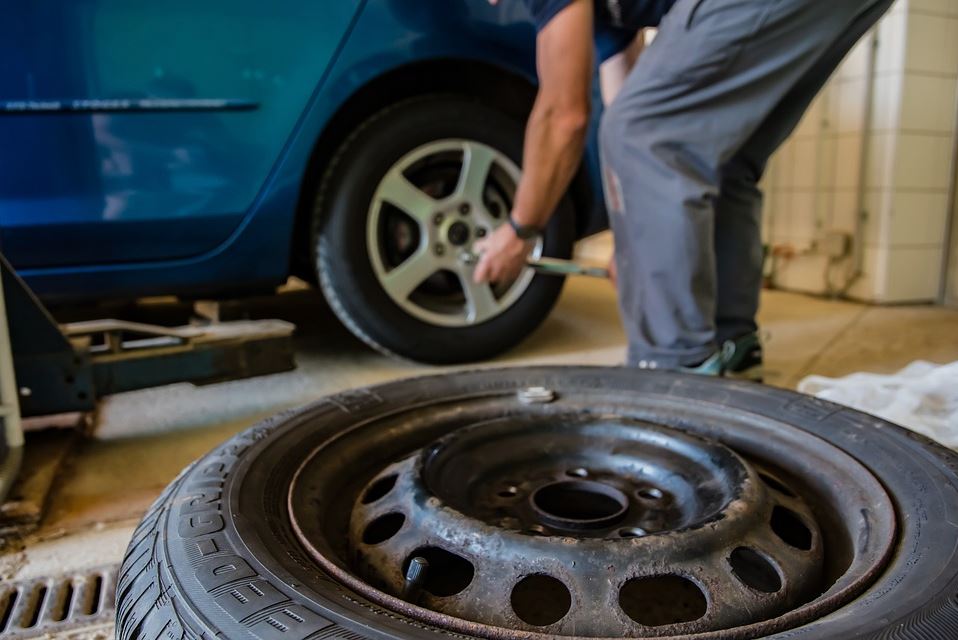
Driving alone is going to be a whole new experience for your eager teen. Unfortunately, by the time they get beyond their learner’s permit and are allowed to drive alone, most teens are still unaware of some of the most common and most alarming signs of car failure. This can lead to improper action in the event of an emergency that may result in otherwise avoidable danger. The following are five vehicle failure signs your teen should be well-versed in before you let them head out on their own.
Battery Problems
A battery can discharge for a lot of reasons. It can be a problem when it happens many miles from home. Your teen should pay attention when the battery light comes on, and try to pull over some place safe to check the battery. Sometimes the problem is nothing more than corrosion build up on the terminals. This can be remedied by removing the negative and then positive terminals and cleaning them off with a toothbrush and a mixture of water and baking soda. Be sure to rinse the terminals, dry them completely and apply petroleum jelly to their surface to prevent further corrosion before hooking the battery back up again by replacing the positive terminal and then the negative terminal. Note, the order you remove and replace the terminals on your battery is critical to preventing harm to yourself and your battery. If this does not solve the problem, then it may be time to ask someone for a jump. It is important to keep jumper cables in your teen’s trunk in case of a battery failure and to show them how to properly hook jumper cables up to the battery. If you don’t feel comfortable allowing your teen to attempt this on their own, consider paying for a roadside assistance service that your teen can call if they see the battery light come on.
Alternator Problems
Another common problem that can arise unexpectedly is alternator trouble. Headlights dimming, an odd smell, growling noise under the hood or other indicator lights flashing on and off can also be a sign of an alternator problem. When your teen observes these signs, it is important that they know to pull over, rather than continuing to drive under threat of total engine failure. If your teen is lucky, all they have to do is unhook the battery and check the seating of the connectors hooked up to the alternator. If reseating the connectors does not resolve the problem, then they are going to need to remove the alternator and have it checked out or replaced. If you don’t have a roadside service, make sure to discuss with your teen how to contact a towing company so that they are prepared in the event that they are unable to continue driving safely.
A Flat Tire
Every teen should be involved in the process of learning how to change a tire. You never know when your teen is going to get a nail or their tire is going to shred in use. If the tire blows at a high speed, they need to be careful to maintain control of the wheel. This can be very scary for many people, causing them to swerve dangerously. Inform your teen that it is important for them to not jerk the wheel, but rather gently glide as quickly as they can to the side of the road and to use the emergency lights. Teach them how to safely check to know if it is safe to change the tire there, or if it would be safer to call a tow truck and stay in the vehicle (such as if they are on the freeway.) If you do not keep a spare tire in the car, it will also be important for you to inform your teen of who your preferred tire shop is so that they can have the car towed there for a replacement if possible.
Brake Problems
It is inevitable that the brakes on a car will eventually become worn down, and sometimes they can get to the point that they give out entirely. The last place your teen wants to be when the brakes give out is plowing towards a crowded intersection with no way to stop the car. Your teen should pay careful attention to signs that the brakes squeal or grind when engaged. Catching problems with the brakes early on can ensure a safe and routine change of brake pads or general brake repair. However, a teen with little money who doesn’t want to get in trouble may not bring up these signs if they don’t know what they mean. They should also be aware enough to ask to have their brake fluid checked during a routine oil change.
Teaching your teen the warning signs of car trouble will help them be properly prepared for disaster. As they learn which signs to watch out for, they will have a better grasp of how to handle both major and minor servicing issues. They will also understand when their car is not fit to drive, and they will avoid getting themselves unnecessarily stranded. Thoroughly discuss these and other common signs of car failure, and consider practicing with them the act of pulling over safely and evaluating whether exiting the car is prudent.


